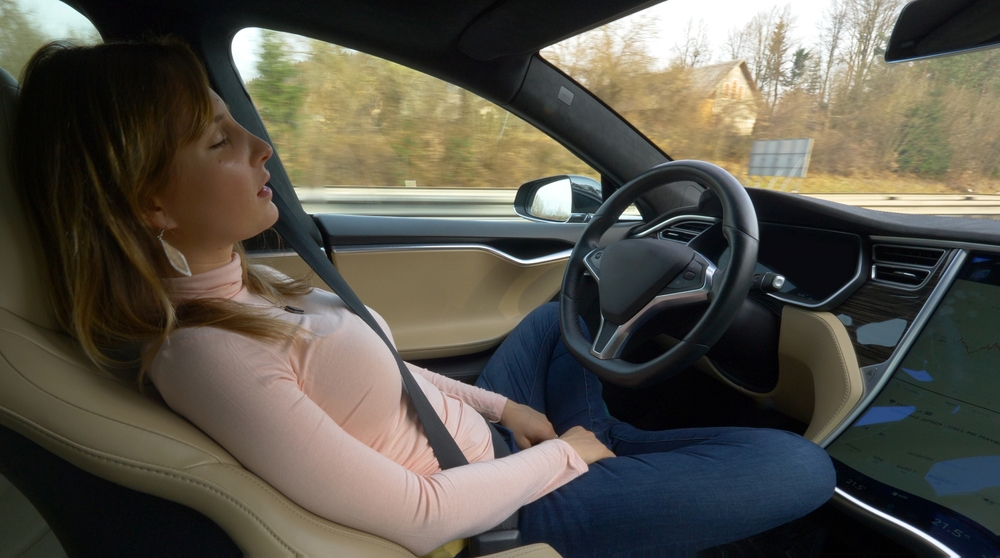Trust in Driverless Cars Divides the UK, New Survey Reveals

- London residents shared the most positive outlook on self-driving cars, with 66% responding positively about the potential for driverless cars in their area
- The Welsh and Scottish both had more than half of their responses share a negative outlook on cars in their local area going driverless
- 41% of Gen Z believed that driverless vehicles could reduce accidents, which was the highest of any age group
As driverless vehicle technology continues to evolve, a new study from car insurance comparison site, iSelect reveals that trust remains a significant roadblock for UK consumers. The Self-Driving Trust Index uncovers how Brits really feel about autonomous vehicles, surveying people on their emotional reactions to local rollout, trust in AI versus human drivers and whether the nation is ready to embrace a driverless future. With government initiatives and tech firms accelerating development in self-driving systems, iSelect surveyed UK residents to gauge their openness to adopting this technology in everyday life.
Which UK Region Shows the Most Support for Self-Driving Cars:
| Rank | Region | Positive | Negative | Neutral |
| 1 | London (+ Greater London) | 66% | 22% | 12% |
| 2 | East Midlands | 47% | 31% | 22% |
| 3 | Eastern England | 44% | 26% | 30% |
| 4 | North East | 44% | 47% | 9% |
| 5 | North West | 41% | 36% | 23% |
| 6 | West Midlands | 40% | 38% | 22% |
| 7 | Scotland | 37% | 53% | 10% |
| 8 | Yorkshire and Humberside | 37% | 44% | 19% |
| 9 | South West | 32% | 50% | 18% |
| 10 | South East | 32% | 41% | 27% |
| 11 | Wales | 20% | 53% | 27% |
| UK overall | 41% | 39% | 20% |
Note: The response rate for Northern Ireland was too low to be included in this table. Mixed feelings about a driverless future in their area When asked how they would feel about cars in their neighbourhood going fully autonomous, overall, 41% expressed a positive sentiment.
On the other hand, 39% reported a negative outlook, including 15% who felt "very negative" about the idea. Meanwhile, a neutral 20% remained undecided. In London, well over half (66%) shared a positive outlook for driverless cars, the highest of any other region across the UK, suggesting the capital is eager to embrace self-driving vehicles.
Meanwhile, the Welsh and Scottish remain firmly on the brakes, with 53% of respondents in both regions expressing a negative sentiment towards the technology. Comfort drops as automation increases Two in five UK respondents are comfortable with basic driver assist features like cruise control or lane assist.
This drops to 27% for partial automation (car handles driving while the human stays alert), and to 16% for full motorway autonomy. Only 11% said they'd be comfortable in a vehicle that's fully autonomous in any condition, while nearly a quarter (23%) said they wouldn't trust any level of autonomy. AI still playing catch-up in trust stakes
According to the research, in split-second decision-making, human drivers take the lead when it comes to trust on the roads. Over half (52%) of Brits said they would trust a sober, experienced human driver in high-risk situations, with only 15% saying they would trust an AI-powered vehicle more. A further 13% said they trust neither, acknowledging the inherent risks of road travel regardless of the driver.
Notably, Gen Z drivers lead with optimism, with 41% of those aged 18-24 saying that they expect accident rates to drop, the highest of any age group. Openness to ownership - but with caution When it comes to owning or using a driverless car, Brits are cautious but not completely closed off to the idea, with two in five saying "maybe" to being open to it but have their concerns.
Meanwhile, 28% would consider buying or riding in a self-driving vehicle, and 32% said they wouldn't, citing a lack of trust. Can automation reduce accidents? Public opinion is split on whether driverless cars will make roads safer.
Almost 1 in 3 (30%) of respondents believed that they would reduce accidents, while 28% think it could increase them. Around 17% of Brits think it will make no difference on the roads, and 26% are unsure of the outcome. Driverless delivery sees more optimism
When it comes to driverless delivery such as groceries and parcels, there was a warmer reception, with 31% of respondents feeling comfortable if they were to use this service. Meanwhile, 42% said "maybe," preferring to have some form of human support available, and a further 26% revealed they wouldn't feel comfortable using the service and wouldn't trust the technology. For more information, please find the full study here: https://www.iselect.com.au/car-insurance/insights/self-driving-trust-index-iselect/
Methodology
The survey was conducted via 3Gem between 30 July and 5 August 2025.
- Respondents were aged 18 or older who either drive regularly or travel in a car.
- 1,000 respondents in the UK, balanced to reflect a mix of genders, ages, and regions in each country.
Transport & Logistics - Driving The Industry Forward